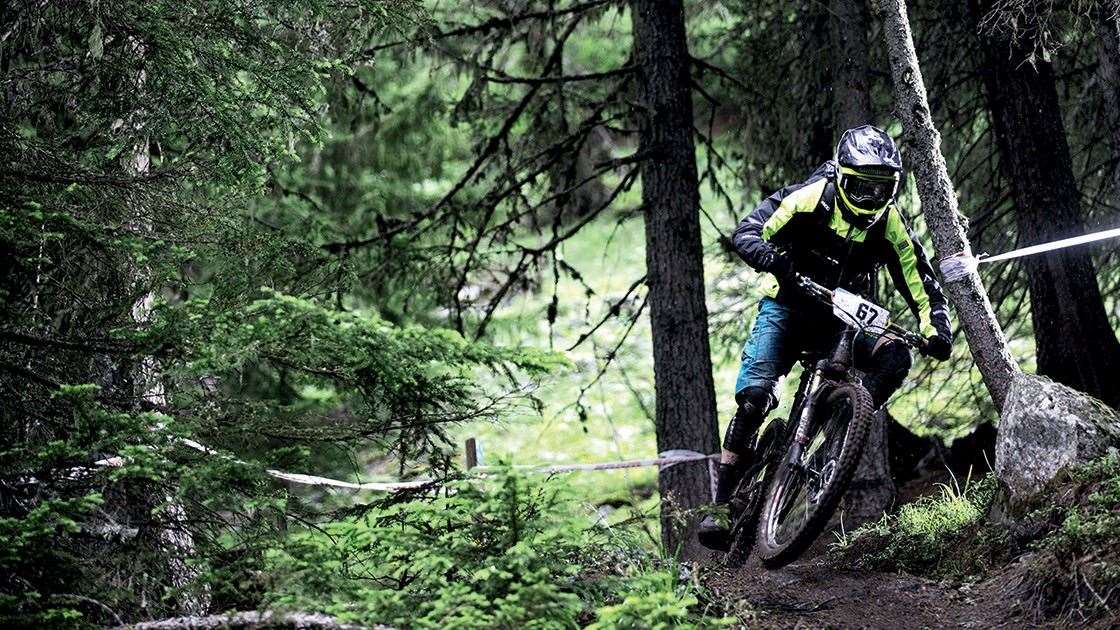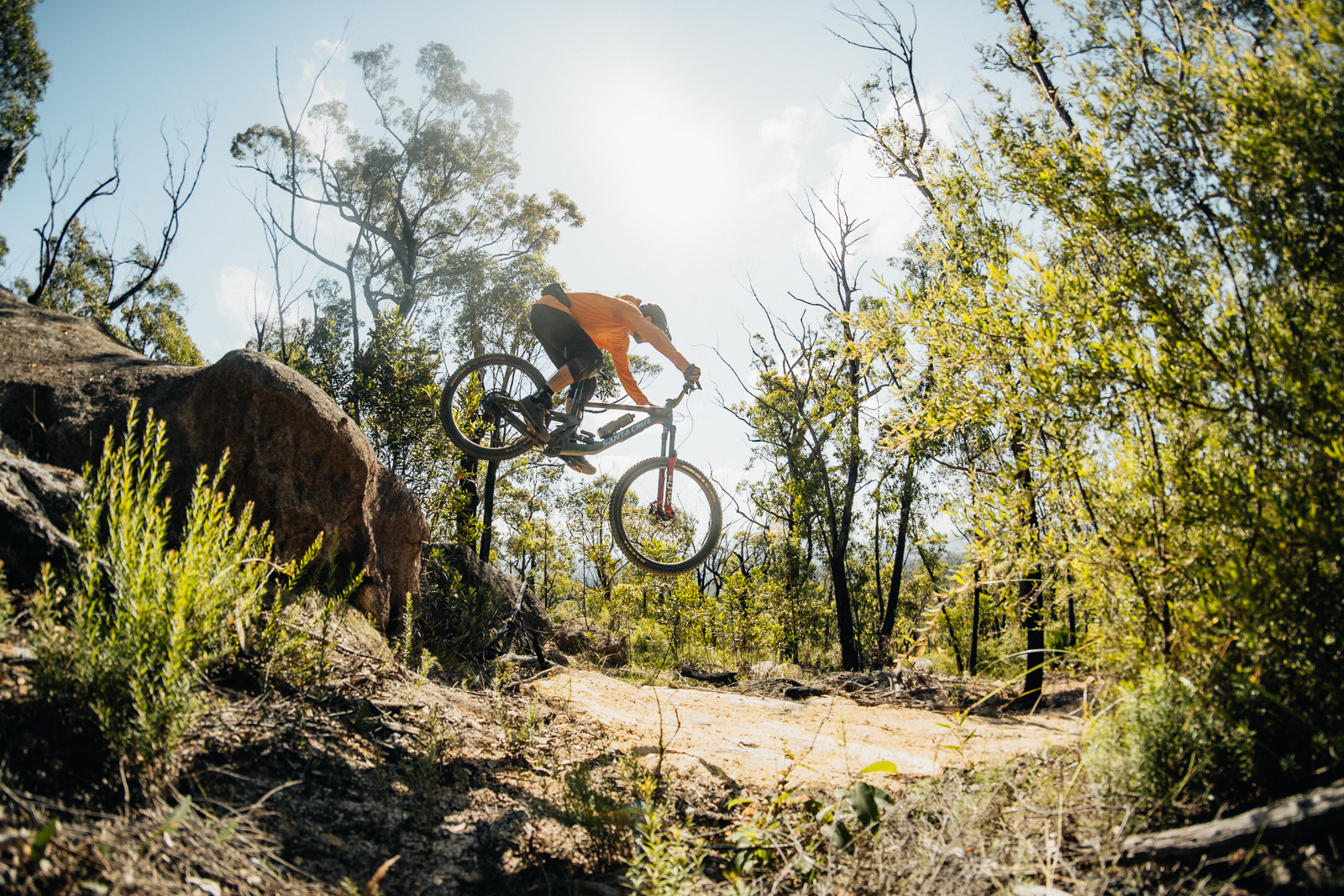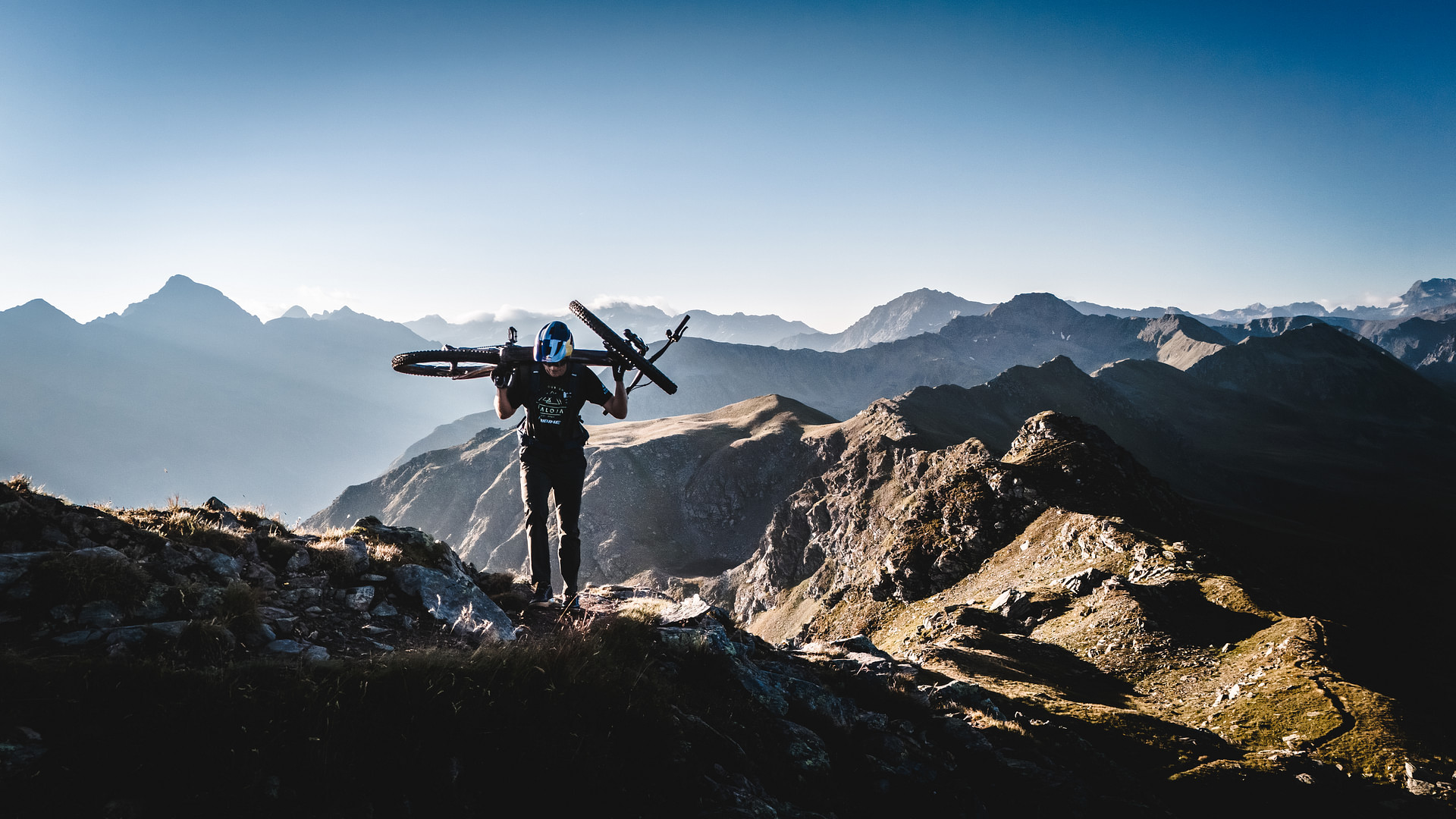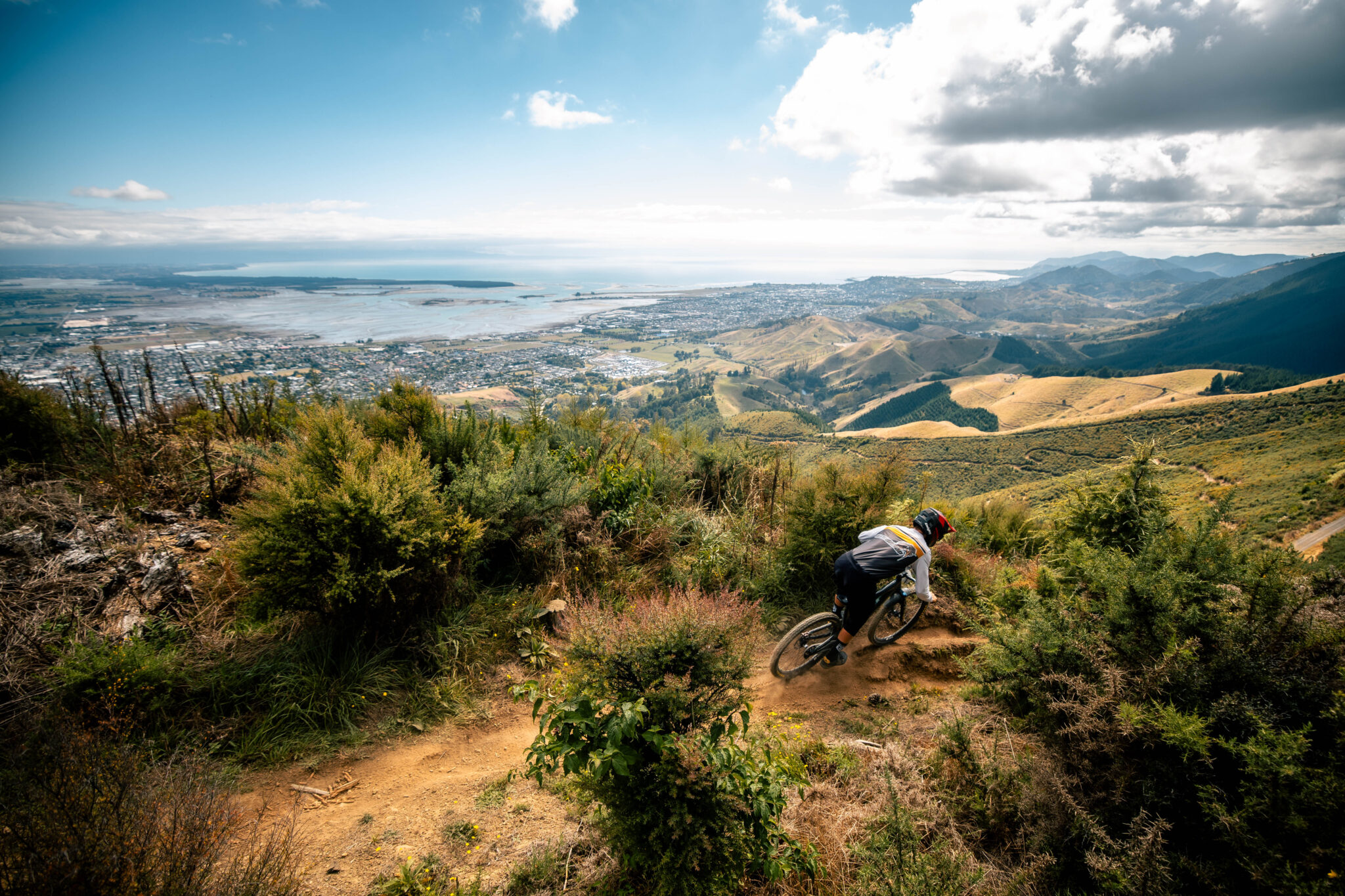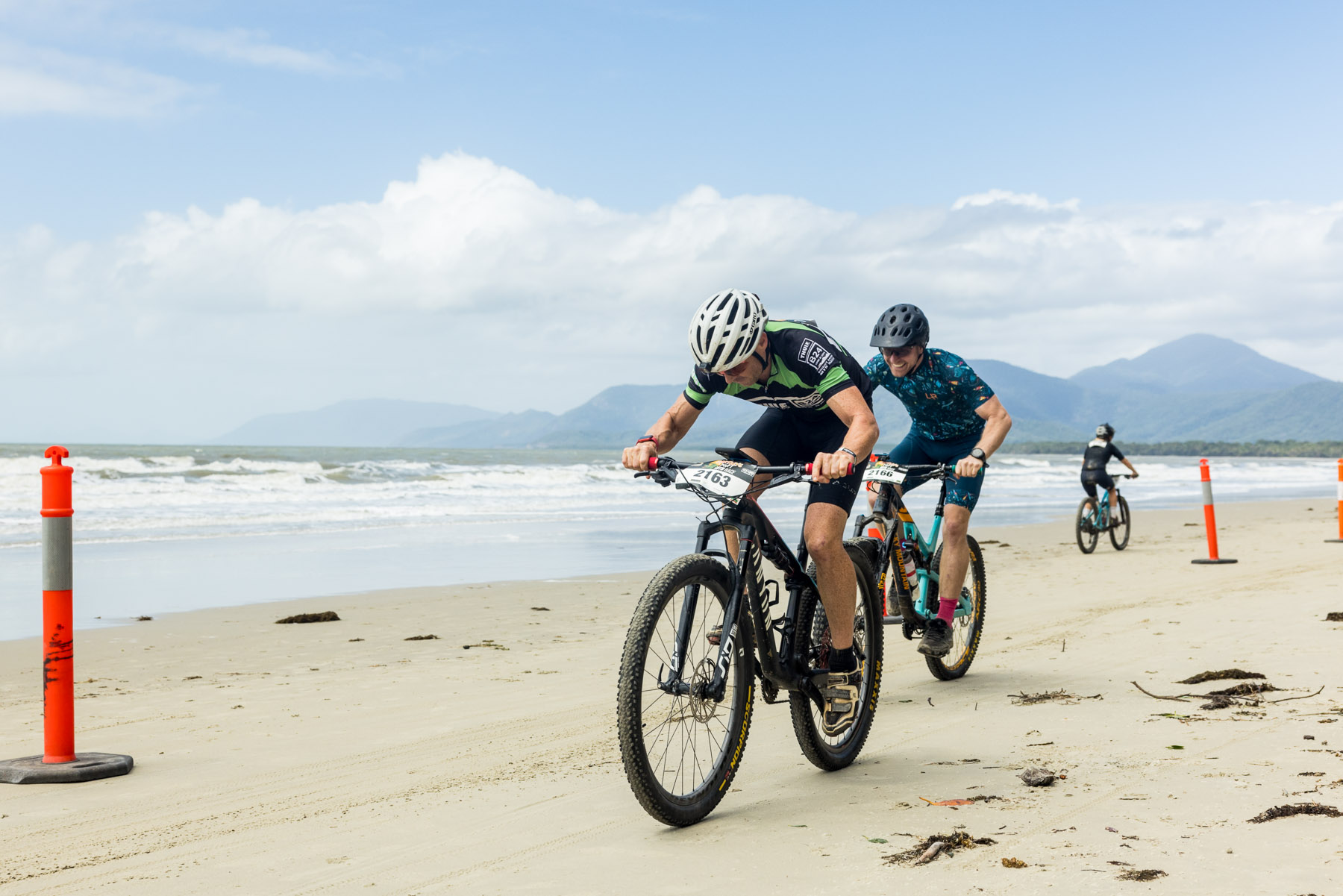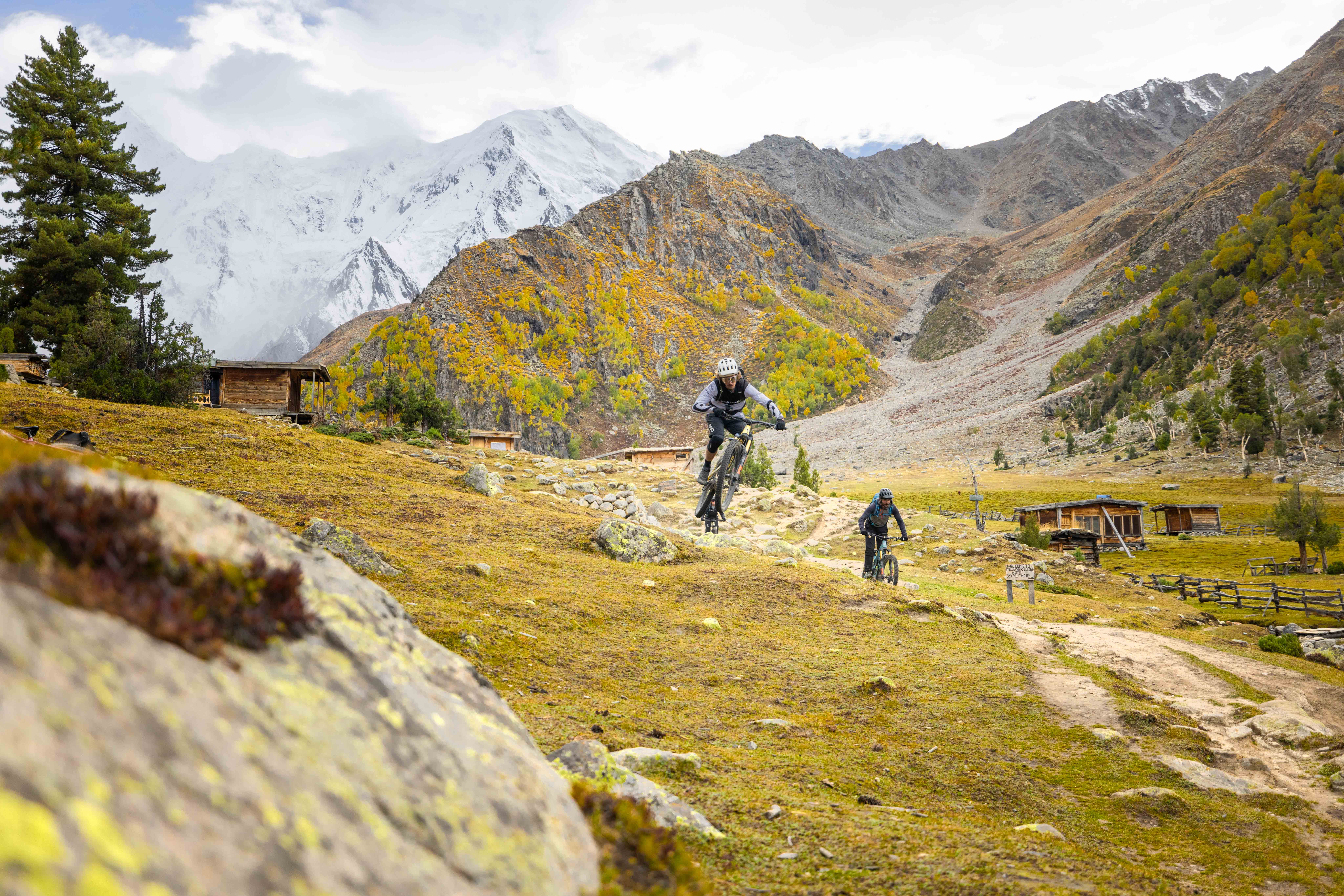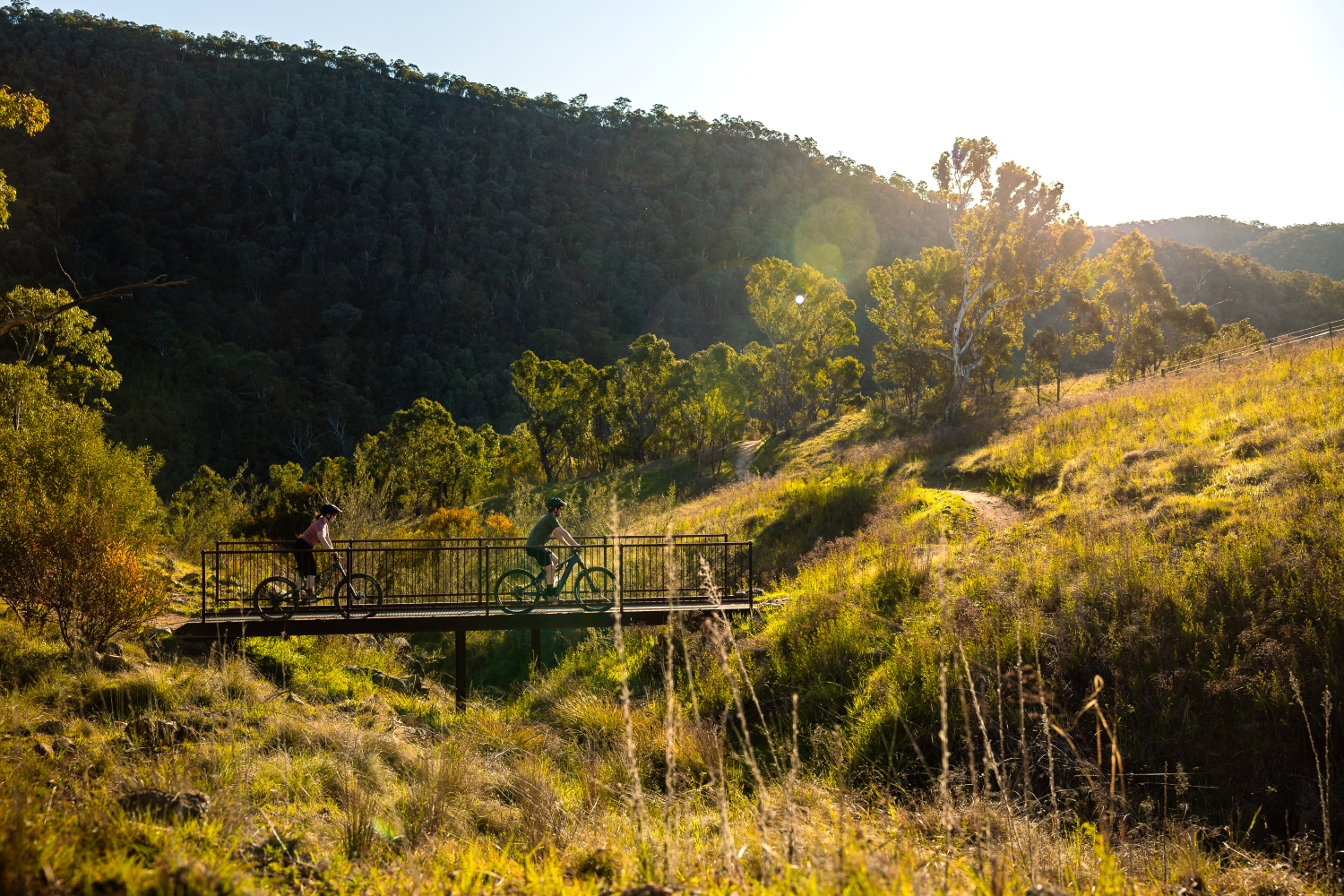Dan Macmunn Interview
Dan MacMunn talks to AMB about the magic and adventure of enduro racing.
Dan MacMunn has been riding bikes since he was a kid, but never really fit into the cross country or the downhill scene.
‘I didn’t have the fitness of the cross country guys and never felt fully comfortable on a downhill bike’ he says.
Related:
When enduro events started popping up in Australia, and the Enduro World Series (EWS) started in 2013, Dan knew he’d found the right combination.
‘I’ve always loved just getting out for big rides, exploring new places and going fast down the hills, which is really what enduro racing is all about.’
‘I followed all the racing really closely and when the EWS started I studied it religiously and wondered how I would stack up. I was pretty keen to try and make it happen and see how I would go.’
Dan’s first trip to Europe was as much about reconnaissance as it was about racing. He scored an entry to the six-day enduro event, the Trans-Savoie, racing through the French Alps. The event provided Dan with the kind of education he needed, the kind that’s hard to get in Australia.
‘We were racing down 15 to 20-minute descents and using lifts to regain the altitude,’ he says.
‘That was completely blind racing, 350 kilometres over six days. No one can ever learn those trails, so it was just a matter of reading the daily track notes then trying to ride everything as fast as you can. Then I had a few little adventures on the side, and watched one of the EWS races over there, and I decided to try and make it happen for 2014,’ says Dan.
After winning the Victoria State Enduro Series and the Victoria State Enduro Champs (and the Australian Enduro Series since then), Dan set himself the goal of finishing inside the top 50 in two European rounds of the 2014 Enduro World Series. He travelled to France and Italy in the European summer this year, racing rounds 3 and 4 of the EWS.
Training For The Big League
Despite working full-time as a firefighter, with a 1.5-hour commute from his home in Bendigo to his station in Melbourne and back every shift, Dan trained 15 hours a week with coach Mark Fenner.
‘I wanted to give it the best crack I could,’ he says.
‘We had a couple of months to prepare and it was winter here, so in pretty ordinary weather we started with a bit of a build and in the last two weeks did a lot of intensity.’
There’s sometimes a bit of a misconception that enduro doesn’t require specific training, although that’s changing as the sport becomes more popular.
‘I put in a lot,’ says Dan.
‘Having to race three or four times a day, and then ride the transfer stages, racing for a couple of days. That requires a high level of fitness.’
As racing approached, Dan and Mark’s aim was to simulate the stresses of enduro racing as much as possible, and Dan moved from doing three-hour bunch rides with Bendigo’s healthy crew of NRS racers, to throwing himself up singletrack climbs on the mountain bike.
‘It’s all about short, ultra-intense efforts and trying to recover while riding technical sections,’ says Dan.
‘We tried to emulate that on the home trails, doing a short two to three-minute effort up a hill, then turning into the most techy trails I could find and trying to recover while going down.
If it sounds like cross country, it’s not.
‘Enduro’s hard to prepare for too because you have to have the endurance base underneath that, because you’re doing six-hour days,’ says Dan.
A Big Bag of Tricks
EWS races can vary in format and logistics – and adaptability is definitely one of the big skills in the enduro racer’s toolbox. Sometimes riders have days to practice on any one course, sometimes they’re not allowed on it at all before race day. Sometimes climbs are lift-assisted, sometimes they’re pedalled, other times riders may need to push.
At Valloire in France, Dan threw himself in the deep end at a race where practice was limited to one, uninterrupted run on the day of the race, although there was the option to walk the course the Friday before the event.
‘I’m of the opinion that if you stress about something enough it’s not going to be as bad as you think,’ says Dan.
‘A few of us actually walked up one stage and down another one day. That eased my mind a bit, just to see what the forest was like and get the feel for what the trails are going to be like.’
In spite of Dan’s experience and success on the domestic scene, our flat old country simply doesn’t have the same kind of riding as Europe and North America.
‘The courses in the EWS (at least the ones I raced) are just bigger in every way,’ he says.
‘The stages themselves are brutal – really raw, fast and rough and a lot longer than anything we have over here. The altitude also plays a part in the Alps. In France I think we descended 11,000 vertical metres over two days: pretty hard on the arms and hands!’ he says.
‘Coming from Oz it is a pretty steep learning curve, but you just have to take it as it comes. There are plenty of places here to ride gnarly stuff on a trail bike, just maybe not for 15 minutes straight!’
Enduro racing is about using your rider’s instinct to respond to whatever the course, the elements, and the organisers dish out. With so little opportunity to practise, Dan says he learned pretty quickly to strike a balance between getting in enough practice, and over-cooking his legs for race day.
‘One of the reasons I have so much passion for this form of mountain biking,’ says Dan, ‘is that there are so many elements to it, and balancing practice and race, the mental and physical balance between learning the trails and feeling comfortable, and not being absolutely stuffed – that was one of the biggest learning curves for me overseas.’
What’s more, with fickle mountain weather and thousands of tyres passing over it in a day, the track changed anyway.
‘By Friday afternoon the track you rode on Thursday morning is totally different,’ says Dan.
Using a GoPro to help review the course off the bike, Dan learned to rely on instinct, rather than trying to memorise endless kilometres of trail.
‘I learned to just aim to get a good feeling for the track, and that mental headspace for me was as important as learning where exactly to go,’ he says.
Dan found that flow in Italy, at round 4 of the EWS. It was his second race overseas, and terrible weather, with freezing rain and snow at the top of the track turning the trails to pulp.
‘I didn’t care,’ says Dan.
‘I had a lot of time thinking leading up to the race, just focusing on the positives: I had done all the preparation well in advance, and I was feeling great about my gear. Then once I got going I just knew that I was riding close to the edge, but that I couldn’t crash. It was a pretty cool sensation.’
Dan detonated his goal of cracking the top 50 in Italy, finishing 37th out of 220 Elite racers.
Managing The Bike … And The Rest
For Dan, managing all your equipment, food, and logistics makes enduro an experience that goes to the heart of what mountain biking is all about.
‘I really love that you have to look after your own gear. In enduro you have to finish with the same wheelset, the same frame, the same rear triangle, and the same forks. They sticker your bike up before you start, and if you swap any of those out it’s a five-minute time penalty. If you get a flat you have to think: should I ride it to the end and save a bit of time, or save the rim and change it. The top guys are so calculating, they know that, for example, a tyre that’s 200 grams heavier will lose them 15–20 seconds on a particular climb – they juggle security and speed all the time.’
Securing an entry to the EWS is much easier than trying to accrue points to race a Downhill World Cup, and entry costs are around 75 Euros – about $100 bucks. Dan’s advice to aspiring Aussie racers is simple:
‘Just do it,’ he says
‘I linked two races together that ran three weeks apart in one trip to Europe – something like that is achievable. Do your research and give it a go and think about the consequences later. It’d be great to see more Aussies go and crack it, and get a place on a team and travel to events. Domestically too it would be great to see enduro more established here so that people could have really healthy competition.
Dan’s recently become a Dad, but still plans to compete again next year.
‘At this stage the best-case scenario would be race Rotorua in March and race the first round, then head over to Europe with the family in September and travel to the last two rounds in Spain and Italy, but we’ll have to see whether that’ll be achievable with work and family,’ he says.
The EWS results lists are stacked with the names of cross country stars and big downhill names. It’s easy to see why riders from diverse disciplines love enduro: It’s the essence of mountain biking – The route’s a bit of a mystery, the landscape awe-inspiring, and you’re guaranteed a big adventure. You ride up a hill chatting to your mates then ride down a technical descent as fast as you can. You take care of your equipment, yourself, your food and your spares, and you have a great time.
Dan agrees: ‘The EWS has been extremely successful, and has proven that a great series can thrive independent of cycling governing bodies. It is really well-organised, has amazing industry support and is still achievable for the average rider. The coverage is impressive and really showcases the places it visits. It will continue to grow for sure. Domestically the future looks good too, with the interest in enduro growing and more and more races being announced. It’s a great way for people to get into racing, meet new people and see really cool places.’
Photographers: Michael Kirkman & Felix Traenkner

